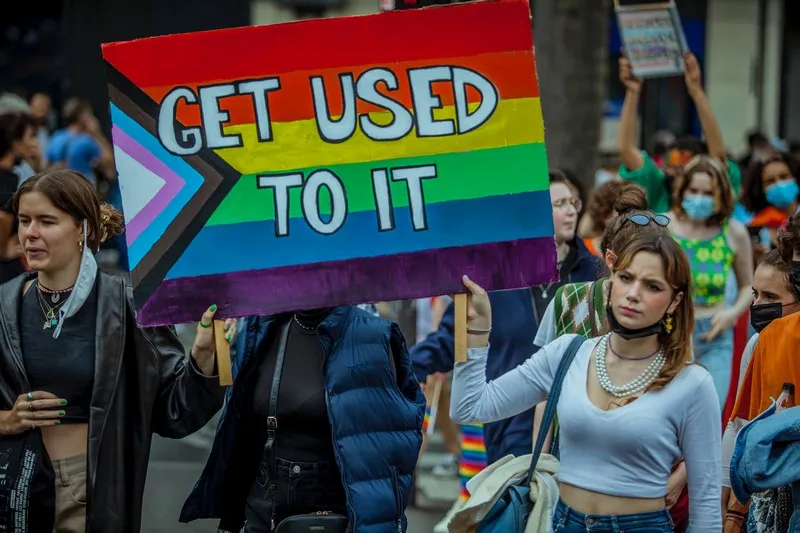Table of Contents
- The Origins of Intersectionality
- Intersectionality in Sociology
- The Application of Intersectionality to Different Social Issues
- Intersectionality and Gender
- Critiques of Intersectionality
- The Future of Intersectionality
- Conclusion
Intersectionality is a concept that has gained significant attention within sociology, especially when addressing issues related to inequality and social justice. Originally coined by Kimberlé Crenshaw, the term describes the ways in which various social categories—such as race, gender, class, and sexuality—intersect to create unique experiences of discrimination or privilege. Rather than seeing these categories in isolation, intersectionality highlights how multiple dimensions of identity interact to shape the lives of individuals and groups. This approach helps us understand how systems of oppression—such as racism, sexism, and classism—can overlap and reinforce one another.
The Origins of Intersectionality
The origins of intersectionality are deeply rooted in Black feminist thought, particularly the work of legal scholar Kimberlé Crenshaw in the late 1980s. Crenshaw introduced the concept in an attempt to explain how Black women experience both sexism and racism in ways that are distinct from both white women and Black men. Crenshaw used intersectionality to argue that legal frameworks, and even feminist and anti-racist movements, often failed to recognize the complexity of multiple, overlapping forms of discrimination.
Black feminists like Audre Lorde and bell hooks had long discussed how race, class, and gender intersect in the lived experiences of Black women. However, Crenshaw formalized the concept of intersectionality as a way to address the limitations of single-axis analyses, which tend to focus on one form of discrimination at a time. Intersectionality challenges this by showing that people can simultaneously occupy privileged and marginalized positions, depending on the social context.
Intersectionality in Sociology
In sociology, intersectionality has become a powerful analytical tool for understanding the complexity of identity and oppression. Traditional sociological theories often focused on single dimensions of inequality, such as class in Marxism or gender in feminism. Intersectionality offers a more nuanced perspective by emphasizing that individuals are not defined by just one identity. Instead, their experiences are shaped by the interaction of multiple identities and systems of power.
For example, a working-class Black woman may face barriers related to her race, gender, and class simultaneously, but not in additive ways. Instead, these identities intersect to create a unique experience of oppression that cannot be fully understood by looking at race, gender, or class in isolation. This approach is particularly useful in understanding the experiences of people who belong to multiple marginalized groups, as it challenges the notion of universal experiences of discrimination.
The Structural Dimension of Intersectionality
One of the key aspects of intersectionality is its focus on structural inequalities. Intersectionality reveals how social structures—such as institutions, laws, and policies—often fail to accommodate the complexities of intersecting identities. Systems of power are not neutral, but rather reflect and reinforce the interests of dominant groups. These systems can exclude or marginalize people who fall outside of normative categories, such as the “ideal worker” or the “ideal citizen.”
For instance, employment policies that only offer benefits to full-time workers may disproportionately harm single mothers or people with disabilities, who are more likely to work part-time due to caregiving responsibilities or health issues. Intersectionality helps highlight how these seemingly neutral policies can have disproportionately negative effects on marginalized groups.
The Application of Intersectionality to Different Social Issues
Intersectionality can be applied to various social issues, from healthcare and education to politics and the criminal justice system. In healthcare, for instance, intersectionality can reveal how women of color may face both racial and gender discrimination in accessing medical services. They may be less likely to receive adequate care compared to their white counterparts, not just because of their race or gender individually, but because of the specific combination of these identities.
In education, intersectionality can shed light on how race, class, and gender affect students’ academic performance and opportunities. Research has shown that Black and Latina women often face challenges that differ from those faced by their white or male peers. These challenges can range from stereotypical expectations about academic ability to economic barriers that limit access to higher education.
Intersectionality and the Criminal Justice System
The criminal justice system is another area where intersectionality is particularly relevant. People from marginalized groups often face disproportionately harsh treatment from law enforcement, the courts, and the prison system. For example, women of color are more likely to be incarcerated than white women, often for offenses related to poverty and survival, such as drug use or theft. At the same time, their experiences within the criminal justice system are shaped by both their gender and race, as they may face sexual harassment or abuse from male guards, in addition to racial profiling and discrimination.
In examining these dynamics, intersectionality enables us to understand how the criminal justice system does not operate in a vacuum, but rather intersects with other social systems, such as education, housing, and employment, to reproduce patterns of inequality.
Intersectionality and Gender
Get the full article AD FREE. Join now for full access to all premium articles.
View Plans & Subscribe Already a member? Log in.





